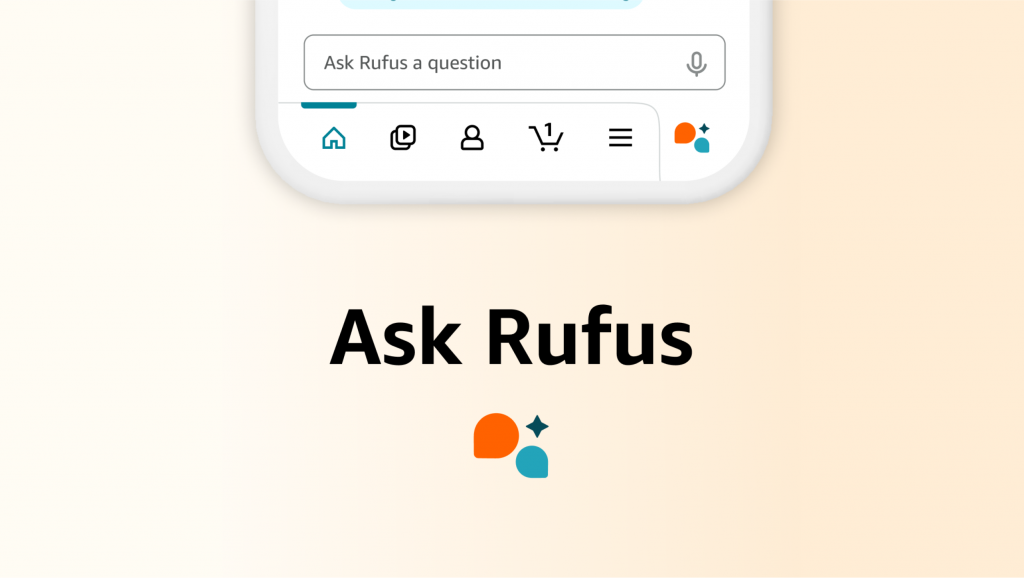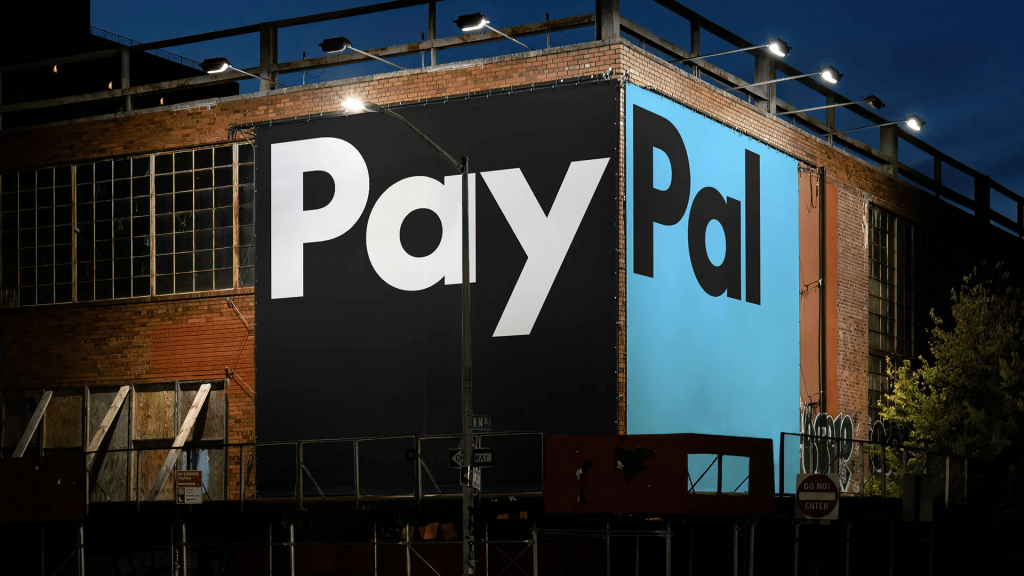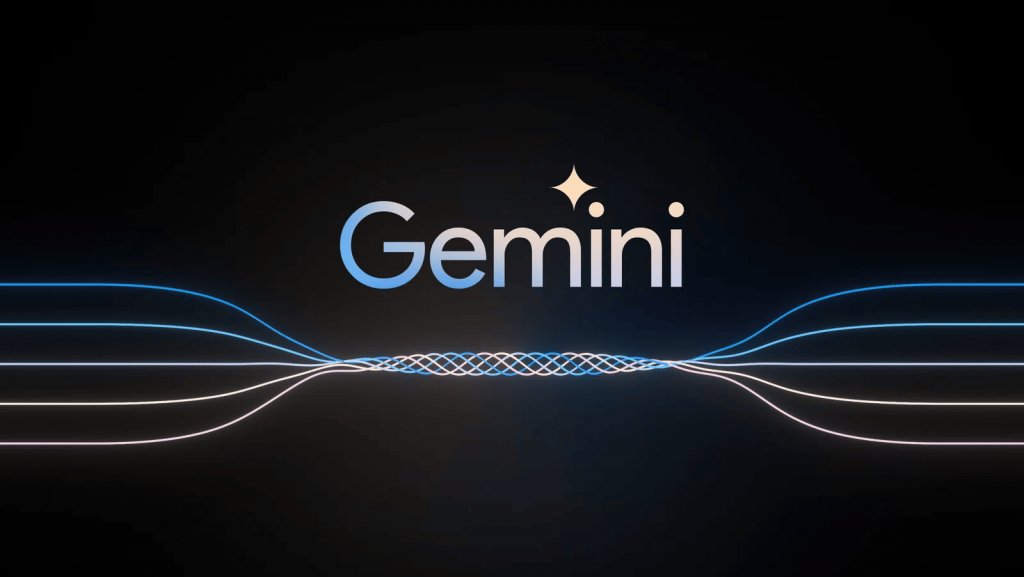September 2024 Recap – Marketing, Brand, and Web
7th Oct 2024

September 2024 has been a month of significant developments across various sectors. From AI innovations to brand refreshes – September has set the stage for an exciting end to 2024. Let’s dive into these stories and explore how they’re shaping our digital and business landscapes.
Meet Rufus: Amazon’s AI-Powered Shopping Companion

Amazon has introduced Rufus, an innovative AI-powered shopping assistant, to the UK market. This intelligent chatbot – integrated seamlessly into the Amazon Shopping app – aims to revolutionise the online shopping experience by leveraging the power of generative AI.
Trained on Amazon’s vast product catalogue and information from across the web, Rufus can assist customers throughout their shopping journey. From answering broad research questions like “What do I need for making smoothies?” to comparing products with queries such as “Should I get trail shoes or running shoes?”, Rufus provides tailored advice and recommendations.
Key features of Rufus include:
- Category education: Users can learn about different types of products (e.g., “Types of headphones”).
- Occasion-based shopping: Rufus can suggest products for specific activities or events.
- Product comparisons: The AI assists in comparing features across product categories.
- Personalised recommendations: Users can ask for gift ideas or product suggestions for specific needs.
- Product-specific insights: On product detail pages, Rufus can summarise customer reviews and answer specific questions about the item.
While still in beta, Rufus represents Amazon’s commitment to enhancing the customer experience through AI. As the technology evolves, Amazon plans to continuously improve Rufus based on user feedback – making online shopping more intuitive and informative for millions of customers.
Beetlejuice 2: When Brand Partnerships Overshadow the Magic

The long-awaited sequel to Tim Burton’s 1988 cult classic “Beetlejuice” has finally arrived, but with an unexpected twist: an overwhelming presence of brand partnerships. Boasting a staggering 35 brand collaborations, “Beetlejuice 2” seems to have taken a page from the marketing playbook of films like “Barbie.” However, what works for a commercially-driven property doesn’t necessarily translate to the offbeat, supernatural realm of Beetlejuice.
While some integrations show creative flair – like CarMax’s ‘BeetleMax’ commercial featuring spooky salespeople – others feel forced and out of place. Fanta plastering Jenna Ortega’s face on soda cans, for instance, seems at odds with the handcrafted, chaotic nature of the original film.
Such blatant commercialisation risks alienating die-hard fans who cherish the movie’s darkly offbeat tone.
The challenge lies in balancing marketing with maintaining magic. For a cult classic like “Beetlejuice,” which thrives on its sense of anarchic charm, navigating the commercial landscape of modern filmmaking is particularly tricky. Successful brand integrations should feel like natural extensions of the film’s universe, not jarring interruptions.
As Hollywood continues to lean into brand partnerships, “Beetlejuice 2” serves as a cautionary tale: while these collaborations may boost awareness, they risk diluting the very qualities that made the original a beloved cult classic.
UK Brand Values in 2024: A Mixed Bag of Challenges and Opportunities
The latest Kantar BrandZ Top 75 Most Valuable UK Brands report paints a complex picture of the UK brand landscape in 2024. While the combined value of these top brands has declined by 5% to $230 billion, this represents an improvement from the 14% drop seen in 2023. However, UK brands still lag behind their global counterparts, which are currently experiencing 20% growth.
Key takeaways from the report include:
- Perception Challenges: UK brands struggle with differentiation and meaningful consumer perception, affecting their ability to command premium prices.
- Growth Potential: Nearly a third of top UK brands have less than a 50% chance of growth in the next year, highlighting the need for strategic marketing investments.
- Future Outlook: While consumer confidence is returning as inflation eases, upcoming budget announcements could introduce new pressures on household spending.
The report emphasises the critical role of brand building in driving long-term growth. As the business case for strong branding gains recognition, marketers have a unique opportunity to demonstrate their value by focusing on meaningful differentiation and strategic brand development.
PayPal’s Bold Brand Refresh: A New Era for Fintech Design

PayPal, a pioneer in digital payments, has unveiled a striking brand refresh that marks a significant departure from its 20-year-old identity. Designed by Pentagram partner Andrea Trabucco-Campos and his team, the refresh may seem subtle at first glance, but a closer look reveals a thoughtful evolution that positions PayPal for the future of fintech.
Key elements of the refresh include:
- Wordmark Transformation: The new PayPal wordmark stands out with its upright orientation and, most notably, a shift from the iconic blue to black. This change differentiates PayPal from the sea of blue dominating fintech branding.
- Custom Typography: A bespoke typeface, derived from LL Supreme and inspired by Futura, brings a timeless and universal feel to the brand’s visual communication.
- Streamlined Colour Palette: The brand now employs a focused palette of white, black, and three shades of blue, eliminating the previously used yellow for a more contemporary look.
- Refined Monogram: The interlocking ‘P’s have been sharpened and can now stand alone, incorporating Venmo’s signature colour at the intersection.
- Dynamic UI Elements: New animations in the app and website mimic familiar mobile payment gestures, enhancing the user experience.
This refresh is more than just a visual update; it’s a strategic move to distinguish PayPal in the competitive fintech landscape while maintaining its heritage. However, the public’s opinion was mixed – as it often happens when big brands make changes.
Regardless, as PayPal continues to expand its services, including the launch of a new debit card, this versatile and modern identity sets the stage for the brand’s future growth and innovation in the digital payment space.
Gemini Takes Centre Stage: Key September 2024 Updates

September 2024 marked a significant milestone for Google Gemini. The AI model, already renowned for its capabilities, saw several notable advancements that further solidified its position as a leading force in the field.
- Integration into Google Workspace: One of the most impactful developments was the integration of Gemini into Google Workspace. This move made the powerful AI accessible to millions of users, empowering them to streamline their workflows and boost productivity.
- Industry-Specific Applications: Gemini’s potential was showcased in various industries. Healthcare providers explored its use in diagnosing diseases, automotive manufacturers leveraged it for autonomous vehicle development, and retailers harnessed its power for personalised customer experiences.
- Gemini 1.5 Flash Improvements: Gemini 1.5 Flash, the latest iteration of the model, also received significant upgrades. Its mathematical reasoning abilities were refined, enabling it to tackle complex problems involving visual elements. Additionally, the model’s language understanding improved, leading to more accurate and contextually relevant responses.
- Contextual Smart Replies in Gmail: In Gmail, Gemini introduced contextual smart replies, providing users with even more personalised and helpful suggestions for responding to emails. This feature further enhanced the efficiency and effectiveness of communication.
As September drew to a close, it was clear that Gemini’s impact was growing rapidly. Businesses and individuals alike were embracing the technology to streamline tasks, improve efficiency, and unlock new possibilities. With ongoing development and advancements, the future of Gemini looks incredibly promising.
This section was written by asking Google Gemini to introduce its September updates.
Google Ads Unveils New AI Features for Enhanced Performance
Google Ads has announced a series of new AI-powered features designed to help businesses achieve better results and gain more control over their advertising campaigns.
Here are the key highlights from the recent announcement:
Gemini Models for Improved Search Campaigns:
- Expanded Language Support: The conversational experience for Search campaigns will be available in German, French, and Spanish.
- Enhanced Performance: Businesses using the conversational experience have seen a 63% increase in publishing high-performing Search campaigns.
Enhanced Creative Fuelling with Generative AI:
- Demand Gen Campaigns: Customise your Google AI strategy by channel, audience, and creativity to tailor messages for your target customers.
- AI-Powered Image Editing: Expand image editing capabilities to Search, Demand Gen, App, and Display campaigns.
- Asset Generation in New Languages: Generate ad copy and images in German, French, Spanish, Portuguese, Dutch, and Italian.
Greater Control and Optimisation:
- Brand Guidelines: Define and upload brand elements to ensure visual consistency across ad formats.
- Demand Gen Creative Preferences: Pin video assets to specific formats and surfaces.
- Asset Generation Customisation: Provide reference images to shape AI-generated outputs.
Deeper Insights and Better Results:
- Creative Reporting: Gain insights into asset performance and receive specific recommendations for improvement.
- Performance Insights: Understand campaign fluctuations and receive tailored recommendations.
- Impression Share Reporting: Track your visibility on Search results pages.
Enhanced Media Management:
- Campaign-Level Negative Keywords: Gain more control over your targeting in Performance Max campaigns.
- Omnichannel Bidding: Maximise both online and in-store conversions.
- Display & Video 360 Integration: Buy Demand Gen campaigns within your existing workflows.
These new features demonstrate Google’s commitment to providing businesses with powerful AI tools that drive better performance and help them connect with their customers more effectively.
Final Thoughts
Significant advancements in AI, branding, and digital advertising marked the September 2024 marketing landscape. From Amazon’s AI-powered shopping assistant to Google Ads’ new AI features – businesses are increasingly leveraging technology to enhance their customer experiences and drive results.
While the integration of brand partnerships and AI into popular culture continues to evolve, marketers must also navigate challenges such as evolving brand values and the complexities of brand updates.
By staying informed about these trends and adapting their strategies accordingly, businesses can position themselves for success in the dynamic world of modern marketing.



